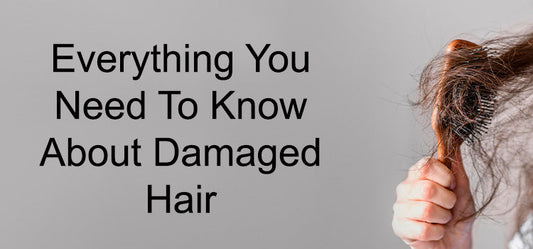
What In Shampoo Isn't Vegan?
Thomas StrangwoodShare
Thankfully in 2023 there is a huge choice of vegan-friendly shampoo and brands are increasingly adding vegan-friendly haircare products to their portfolios every day but it may lead to you to ask the question, What exactly is in shampoo that isn’t vegan anyway? Well we’re going to explain.
What Are The Non-Vegan Ingredients In Shampoo?
-
Keratin: Keratin is a protein that’s naturally found in human hair but it’s also found in animal hooves, horns and feathers. Often Keratin is added to shampoos to strengthen and smoothen hair, However Keratin is not a vegan friendly ingredient as in most cases it’s mostly derived from animal sources.
It's important to note that Keratin can also be humanely extracted from wool residue which doesn’t involve the slaughter of the animal.
- Collagen: Collage is another protein that is derived from animal sources such as animal skin, bones and connective tissues. It’s often added to shampoos to strengthen hair and stimulate hair growth. Like Keratin, Because Collagen is derived from animal sources, It is not vegan friendly.
- Lanolin: Lanolin is a waxy substance that is derived from sheep’s wool, It’s often added to hair care products as a moisturizing agent. Whilst this product is derived from sheep’s wool, It doesn’t involve the animals slaughter and can be ethically sourced without harm to the animal, Because it is derived from sheep’s wool though, It would still not be considered vegan-friendly.
- Beeswax: Beeswax is a natural wax that is produced by the honeybee, It’s been used in haircare products and beauty products for an incredibly long time. It’s added to hair products as it provides a protective coating on the hair. However, As you’ve already guess it’s not vegan friendly as it comes from animal sources.
- Glyceryl Stearate: Glyceryl Stearate is an emulsifying agent that is often derived from animal fats, such as beef tallow. It’s added to shampoos to help combine oil and water-based ingredients as naturally, oil will not mix with water. Being derived from animal fats though, It is not a vegan friendly ingredient.
There are a few alternatives that can be found as substitutes in vegan-friendly shampoos but it’s important that you don’t compromise the quality of the product. Just because a product is vegan-friendly, It doesn’t always mean that it’s good for the hair.
For example, Some vegan friendly shampoos still contain sulphates, Sulphates like sodium lauryl sulphate (SLS) and sodium laureth sulphate (SLES) are surfactants that are commonly used in shampoos, Vegan friendly and non-vegan friendly alike. However, sulphates can be harsh and irritating to the scalp and can strip natural oils from the hair leaving it prone to damage and breakage. You can read more about why you should be using a sulphate free shampoo here.
Some shampoos in place of Keratin will add silicones. Whilst there are Silicones that are derived from animal ingredients, there are also many Silicones that are also derived from plant sources or Silicones that are synthetic. Whilst this the end result is very similar to Keratin, With Silicones you can find that over time, you get a build up of product, leaving the hair feeling heavy and greasy. They can even cause the hair to start looking dull or lifeless. In addition to this, If you have thin hair, this can make the problem look worse than it is by weighing down the strands to make them look limp or flat.
Another potential issue with Silicones is that they can interfere with moisture balance in the hair. Silicones form a barrier on the hair which can then prevent moisture from getting into the hair cuticle which over time will leave your hair feeling dry, brittle and over time you will develop split ends and even breakage.
Brands like Maria Nila and Affinage have a whole range of products that are both vegan-friendly and do not comprise quality ingredients. Be sure to check them out.



